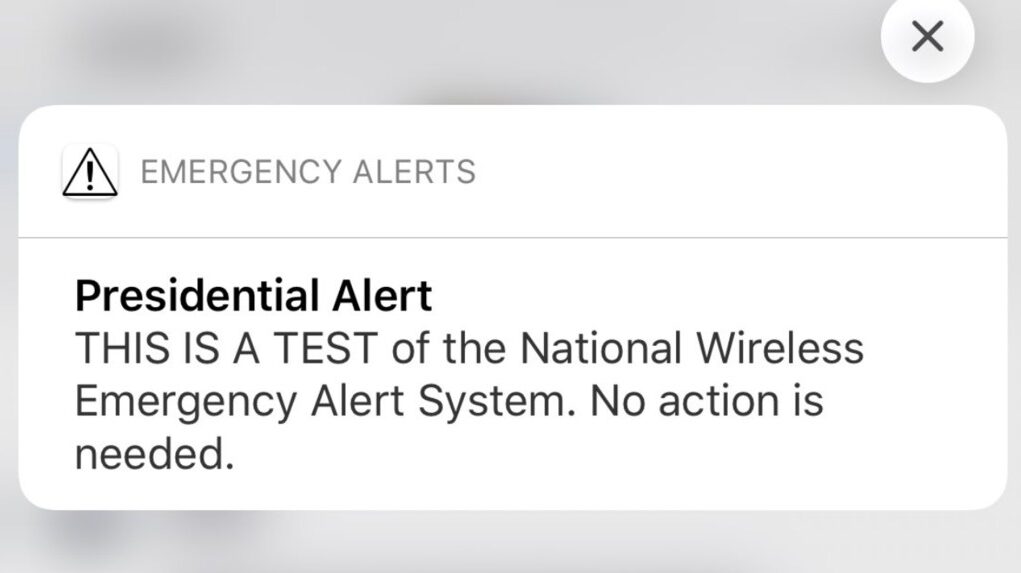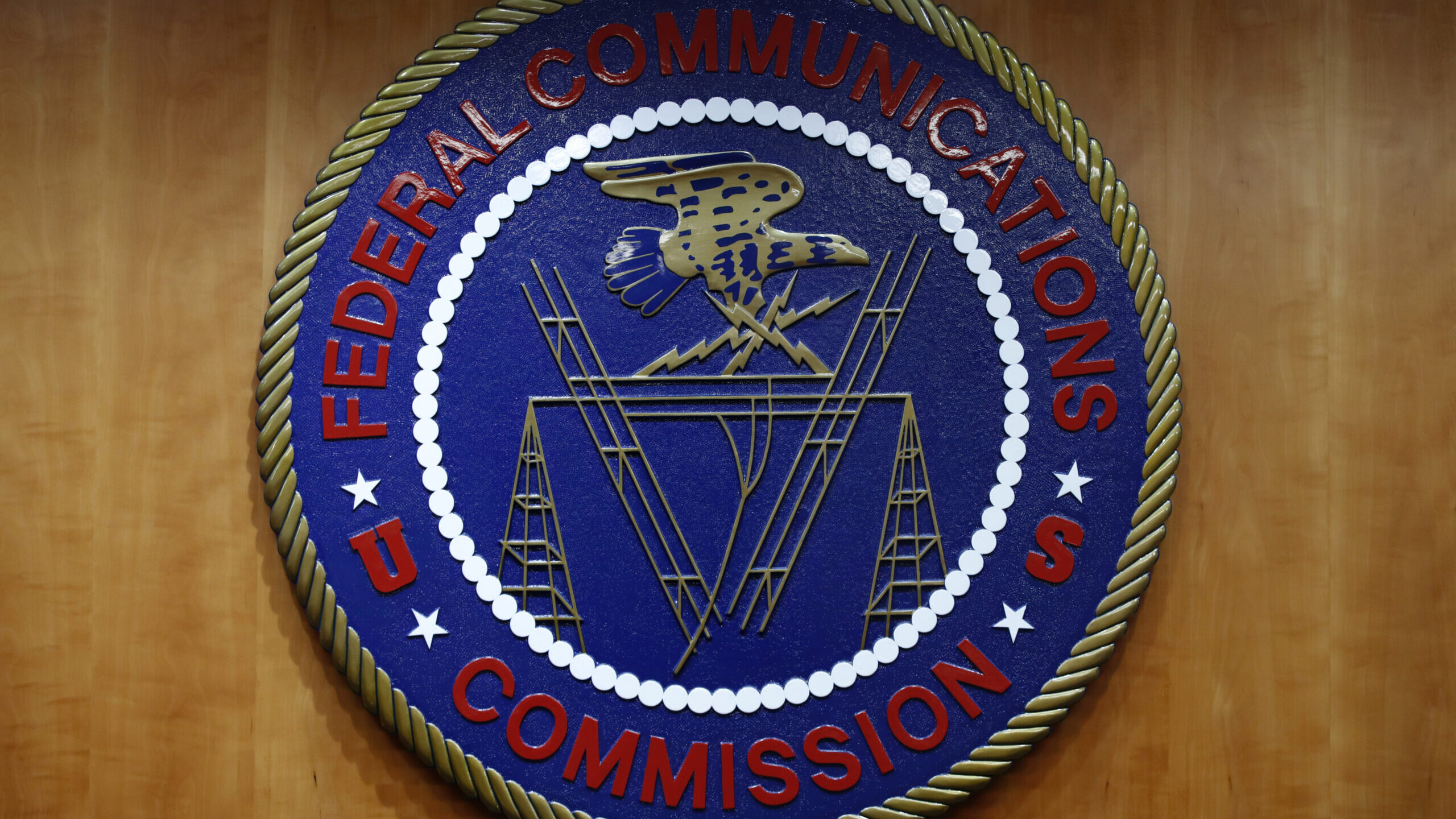Nationwide test of Wireless Emergency Alert system could test people’s patience – or help rebuild public trust in the system
Oct 3, 2023, 9:48 AM | Updated: 4:24 pm

The IPAWS (Integrated Public Alert & Warning System) will be tested October 4. (Screenshot from Twitter/Deseret News)
(Screenshot from Twitter/Deseret News)
(The Conversation is an independent and nonprofit source of news, analysis and commentary from academic experts.)
(THE CONVERSATION) The Wireless Emergency Alert system is scheduled to have its third nationwide test on Oct. 4, 2023. The Wireless Emergency Alert system is a public safety system that allows authorities to alert people via their mobile devices of dangerous weather, missing children and other situations requiring public attention.
Similar tests in 2018 and 2021 caused a degree of public confusionand resistance. In addition, there was confusion around the first test of the U.K. system in April 2023, and an outcry surrounding accidental alert messages such as those sent in Hawaii in January 2018 and in Florida in April 2023.
The federal government lists five types of emergency alerts: National (formerly labeled Presidential), Imminent Threat, Public Safety, America’s Missing: Broadcast Emergency Response (Amber), and Opt-in Test Messages. You can opt out of any except National Alerts, which are reserved for national emergencies. The Oct. 4 test is a National Alert.
We are a media studies researcher and a communications researcher who study emergency alert systems. We believe that concerns about previous tests raise two questions: Is public trust in emergency alerting eroding? And how might the upcoming test rebuild it?
Confusion and resistance
In an ever-updating digital media environment, emergency alerts appear as part of a constant stream of updates, buzzes, reminders and notifications on people’s smartphones. Over-alerting is a common fear in emergency management circles because it can lead people to ignore alerts and not take needed action.
The sheer volume of different updates can be similarly overwhelming, burying emergency alerts in countless other messages. Many people have even opted out of alerts when possible, rummaging through settings and toggling off every alert they can find.
Even when people receive alerts, however, there is potential for confusion and rejection. All forms of emergency alerts rely on the recipients’ trust in the people or organization responsible for the alert. But it’s not always clear who the sender is. As one emergency manager explained to one of us regarding alerts used during COVID-19: “People were more confused because they got so many different notifications, especially when they don’t say who they’re from.”
When the origin of an alert is unclear, or the recipient perceives it to have a political bias counter to their own views, people may become confused or resistant to the message. Prior tests and use of the Wireless Emergency Alert system have indicated strong anti-authority attitudes, particularly following the much-derided 2018 test of what was then called the Presidential Alert message class. There are already conspiracy theories online about the upcoming test.
Trust in alerts is further reduced by the overall lack of testing and public awareness work done on behalf of the Wireless Emergency Alert system since its launch in June 2012. As warning expert Dennis Mileti explained in his 2018 Federal Emergency Management Agency PrepTalk, routine public tests are essential for warning systems’ effectiveness. However, the Wireless Emergency Alert system has been tested at the national level only twice, and there has been little public outreach to explain the system by either the government or technology companies.
More exposure and info leads to more trust
The upcoming nationwide test may offer a moment that could rebuild trust in the system. A survey administered in the days immediately following the 2021 national test found that more respondents believed that the National Alert message class label would signal more trustworthy information than the Presidential Alert message class label.
Similarly, in contrast to the 2021 test, which targeted only select users, the Oct. 4 test is slated to reach all compatible devices in the U.S. Since users cannot opt out of the National Alert message class, this week’s test is a powerful opportunity to build awareness about the potential benefits of a functional federal emergency alert system.
The Oct. 4 test message is expected to state, “THIS IS A TEST of the National Wireless Emergency Alert system. No action is needed.” We instead suggest that action is, in fact, urgently needed to help people better understand the rapidly changing mobile alert and warning ecosystem that confronts them. Familiarity with this system is what will allow it to support public health and safety, and address the crises of the 21st century.
Here are steps that you can take now to help make the Wireless Emergency Alert system more effective:
–
The Wireless Emergency Alert system is only one form of emergency alert. Identify which mobile notification systems are used by your local emergency management organizations: police, fire and emergency services. Know which systems are opt-in and opt-out, and opt in to those needed. Ensure access to other sources of information during an emergency, such as local radio and television, or National Oceanic and Atmospheric Administration weather radio.
Understand the meaning of mobile device notification settings. Just because you are opted in to “Emergency Alerts” on your cellphone does not necessarily mean you are signed up to receive notifications from local authorities. Check the FEMA website for information about the Wireless Emergency Alert system and your local emergency management organizations’ websites about opt-in systems.
Have a plan for contacting family, friends and neighbors during an emergency. Decide in advance who will help the vulnerable members of your community.
Find out if your local emergency management organizations test their alert systems, and make sure to receive those local tests.
Anticipate the possibility that mobile systems will be damaged or unavailable during a crisis and prepare essentials for sheltering in place or quick evacuation.
Finally, push back on the lack of information and rise of misinformation about alerts by sharing reliable information about emergency alerts with your family and friends.
This article is republished from The Conversation under a Creative Commons license. Read the original article here: https://theconversation.com/nationwide-test-of-wireless-emergency-alert-system-could-test-peoples-patience-or-help-rebuild-public-trust-in-the-system-214453.













